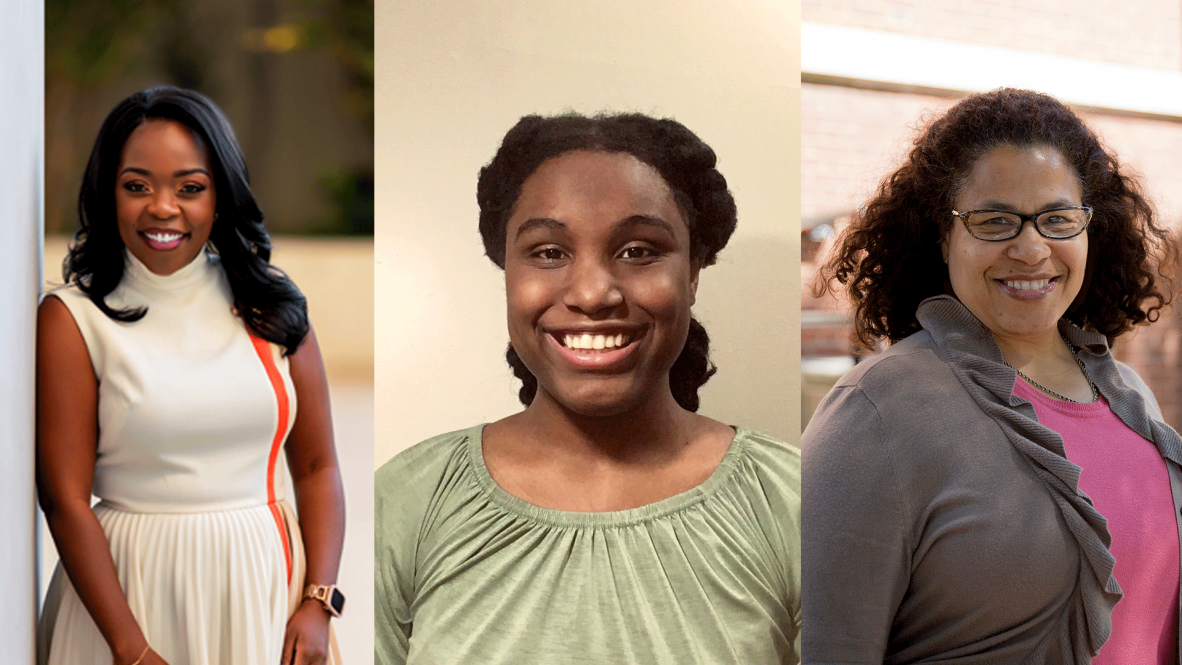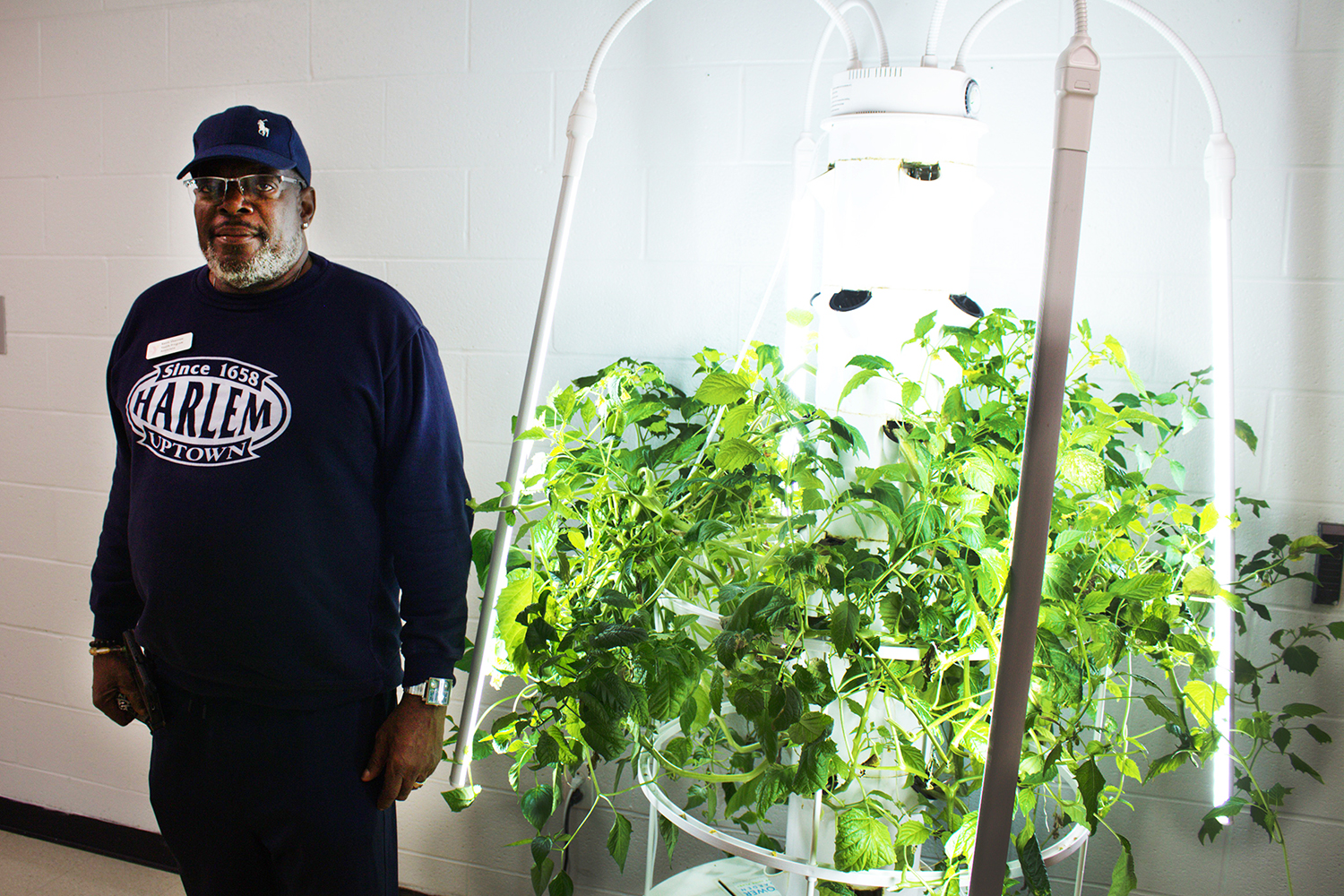In October 2019, Breanna McFarlane ’22 (CLAS) attended the UConn March Against Racism. She didn’t realize that it would be a turning point in her experience with social justice.
After a group of students were arrested for shouting racial slurs on campus at UConn Storrs, students representing the Black Students Association, the NAACP of UConn, and other BIPOC organizations marched in front of the Student Union in response to the event. They marched for their voices to be heard and for the University to stand against racism.
“I felt it was very powerful when people were chanting and sharing their stories,” she says. “You can feel the weight of the experiences and the urgency in demanding justice.”
A month earlier, students had gathered in the same place to strike for climate justice, in solidarity with millions of students across the world.
The protests at UConn highlighted to McFarlane. urban and community studies (UCS) and human development and family sciences (HDFS) double major, how relevant and important her new social justice organizing minor was.
As social justice issues become more prominent on campus, McFarlane and her peers share some of the initiatives in the College of Liberal Arts and Sciences (CLAS) empowering diverse voices and promoting learning and action for equity and social justice at UConn.
“The African Americans and Social Protest course is really teaching me how social movements work,” McFarlane says. “You’re not just learning information in the classroom; you’re learning how to apply it and find your own voice even more.”
Educational Equity and Justice
A year after the March Against Racism, her minor led McFarlane to intern with Kamora’s Cultural Corner (KCC) in Hartford, Connecticut, an organization based on using Black Queer and Afrocentric art to build community connections. Their weekly community discussions supplemented the lessons about social systems and movements she was learning in her classes.
“Kamora opened my eyes to the idea that everyone has a predefined role in a protest,” McFarlane says. “When it comes to social movements, it’s important for everyone to know their role for the movement to function properly.”
Giving a platform for all voices to be heard and have equal weight in a movement ensures the movement will be efficient, she says.
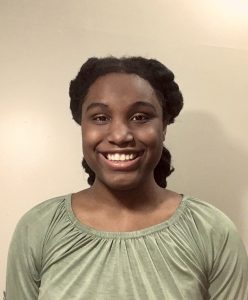
But many young people often lack the training and education to amplify their voices during a social movement, she says. Part of her work in her capstone class centers on educating students from as early as elementary school to be more socially aware.
At Kamora’s Cultural Corner, McFarlane watched media made by Black people, for Black people. While watching, she focused on conscious witnessing: people becoming aware of what society or the media wants them to see and understanding that they have control over what they see, interpret, and internalize.
“A lot of times we just consume the information in a movie or show scene for enjoyment,” McFarlane says. “But instead, I watched and listened to these forms of art and thought about why these Black artists and activists created this and what they were trying to convey through their art.”
Back in class with her advisor Jason Chang, associate professor of history and director of the Asian and Asian American Studies Institute, and Alexis Boylan, professor of art and art history, McFarlane discussed how choosing what people view, and how they witness it, is a conscious political act.
She developed a lesson plan for public school students to encourage them to be more conscious and involved citizens when viewing popular media.
“If you use conscious witnessing in an educational context, you can teach young students about what they’re consuming and how that affects them and their perspective,” she says.
Growing up, McFarlane loved learning, she says, and her teachers often encouraged her by telling her that she was smart. This made a difference in her education, compared to some of her peers, and sparked her interest social justice in education.
Chang, her advisor for the minor, connected her with the Systemic Change Initiative magazine, where she is developing her voice and further acting on her social justice interests.
“The information learned and opportunities given go beyond just the courses you take, but it gives you opportunities and connections to become more involved in grassroots organization afterwards as well,” McFarlane says.
After graduating, she wants to use her experience to work in educational policy or advocating for policy and practices that provide public school students with equality, equity and liberty in education.
“The way the public education system is set up, a lot of inner-city students don’t have the options or encouragement to take opportunities that they’re very much qualified for,” she says. “I want to change that.”
A Women’s Leadership Collective
Maria Baratau used to have to coach herself for several minutes before speaking up in class. She second-guessed her own voice and opinions for fear of judgement.
“I was very uncertain with my responses, and questioned, ‘if I’m going to say that, what will they think? Will it make sense?’” she says.
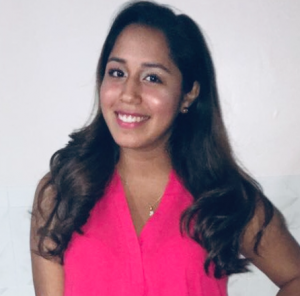
Baratau immigrated with her parents from Ecuador when she was five. “When I took advanced placement classes in high school there were only two people of color in my class. I was scared to raise my voice and speak up.”
Then she joined the CLAS Women’s Leadership Collective. The WLC addresses some of the unique challenges women face in the workforce and provides undergraduate students who have little leadership experience with an opportunity to discover their leadership style, with group mentorship from UConn alumnae.
As the only child of parents who went to college in Ecuador, Baratau had been guiding herself through the college experience and learning.
“It was important that I could have mentors who would guide and empower me,” she says.
Baratau was accepted into the inaugural year of the program and was paired with Kerry DeBenedictis ’91 (CLAS), ’95 MS, Miriam Katz ’19 (CLAS), ’20 MPH, and Odia Kane ’19 (CLAS), ’20 MPH, along with a co-mentee. From the first meeting, her mentors encouraged her to lead the discussion and build her public speaking skills. They also provided positive feedback on her public speaking, her resume, and applying to jobs and graduate programs, she says.
Their virtual meetings led to discussions on topics such as what being a leader means, and how to overcome barriers women in the workforce face. She also learned about their own backgrounds and set goals for their meetings.
One of her goals was to get into UConn’s fast-track program for the Master’s in Public Health (MPH).
Now, Baratau, who double majors in human development and family sciences and global health, has become more assertive and confident in sharing her voice.
“I became really proud to speak up, raise my hand and say what’s on my mind. Because I know my voice deserves to be heard along with everyone else’s.”
In their virtual meetings, DeBenetictis, Katz, and Kane guided Baratau toward internships that suited her interest in exploring how conditions in the environment in underserved communities can impact their health and wellbeing.
During one conversation, Baratau mentioned she wanted to complete her bachelor’s and master’s degree in five years, like Katz and Kane had. But already in her fourth year of undergraduate study, she feared she had missed the opportunity to apply for the fast-track program.
Recently, Baratau was accepted into UConn’s Master of Public Health Fall 2021 cohort.
“If not for their mentorship, I don’t think I would have applied to the MPH, program because I was very unsure,” Baratau says.
“They are the most amazing mentors that I’ve had,” she says. “This program showed me if they could do it, I can too.”
Addressing Institutional Racism
Since its inception last Spring, the #BlackintheIvory hashtag has surfaced stories of racism and discrimination against Black faculty and other members of academic institutions across the country, and heightened the call for higher education institutions to address systemic racism.
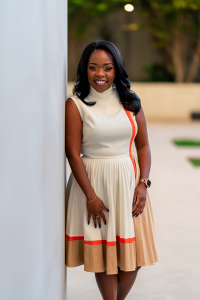
Now, the UConn Humanities Institute is working to address some of the obstacles facing faculty of color with the help of a three-year, $750,000 Mellon Foundation grant that expands the New England Humanities Consortium (NEHC) Faculty of Color Working Group (FOCWG).
Recently, they named Shardé M. Davis, assistant professor of communication and creator of #BlackintheIvory, as the first Faculty of Color Working Group Residential Fellow, funded jointly by the College, the Provost’s Office, and the grant.
“I am honored to receive this fellowship to work on my newest project, which is a book that responds to my Twitter hashtag, #BlackintheIvory,” Davis says. The new book is titled Being #BlackintheIvory: Contending with Racism in the American University.
Davis is one of three faculty at NEHC member institutes to receive the Mellon Faculty of Color Fellowship in the coming year. It was established by Melina Pappademos, Co-Principal Investigator of the grant, Executive Director of the FOCWG, and Director of the Africana Studies Institute; Alexis Boylan, Director of Academic Affairs for UCHI and Co-PrincipaI Investigator of the grant; and Michael Lynch, professor of philosophy and Principal Investigator of the grant, to enable junior faculty to spend a year as a research fellow at another institution’s humanities center, furthering their research while connecting with other researchers in the Consortium.
“With a year away from teaching, I will have the intellectual and emotional space to curate a book that addresses critical needs among Blackademics, which includes an opportunity to have one’s story heard (and perhaps even believed), to receive validation that individuals are not culpable for anti-Black racism, and to learn how to maneuver racism in the academy, fight back, or walk away from academia altogether,” Davis says.
Nikki A. Green, assistant professor of art at Wellesley College, Massachusetts, and Anaiis Cisco, assistant professor of film and media studies at Smith College, Massachusetts, were named as 2021-22 Mellon Faculty of Color Fellows.
The FOCWG focuses on three main initiatives specific to faculty of color: the fellowship program, a mentoring program, and a Faculty of Color Working Group Symposium in May with the 13 other NEHC member institutes.
“Faculty of color in the humanities face obstacles in their pathways to career advancement and leadership, such as having their research devalued or their contributions, ignored,” Pappademos says. “Compounding these obstacles are the historically low, often minute percentages of FOC represented at predominately white institutions–including among administrators.”
Predominantly White Institutions (PWIs) often overlook these disadvantages and provide unfocused or too few supports to help FOC surmount them, she says. In turn, faculty of color tend toward high levels of stress, overwork, and attrition, and career advancement happens at a slower pace than it does for their white peers.
“The FOCWG seeks to attend to this spate of circumstances and improve the long-term trajectory of success among faculty of color at PWIs,” Pappademos says.
“This is a process of discovery, of identifying and understanding the full range of needs among faculty of color, of taking immediate steps to remedy areas that need greatest attention while also working to build out several crucial faculty supports,” she says. “We want to be proactive in understanding and addressing these needs.”
This is part of a series of articles highlighting the breadth of opportunities for experiential learning, research, one-on-one guidance, or mentorship between students and faculty in the College of Liberal Arts and Sciences. Explore more under the hashtag #DiscoverUConnCLAS.
